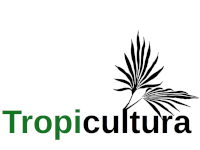Marketing Ricinodendron heudelotii Kernels and Gnetum spp. Leaves around Lobeke National Park, East Cameroon
Résumé
Commercialisation des graines de Ricinodendron heudelotii et des feuilles de Gnetum spp. autour du Parc National de Lobéké à l’Est du Cameroun.
La commercialisation des graines de Ricinodendron heudelotii et de feuilles de Gnetum spp. a été étudiée autour du Parc National de Lobéké au Cameroun. Les acteurs des chaines d’approvisionnement de produits forestiers non ligneux (PFNL) ont été identifiés, ainsi que leurs bénéfices financiers et les problèmes rencontrés. Des questionnaires semi-structurés ont été utilisés auprès de152 collecteurs de 8 villages et de 120 commerçants de quatre marchés. Les acteurs principaux sont les collecteurs, les grossistes, les détaillants et les consommateurs. Les marges bénéficiaires annuelles des collecteurs de R. heudelotii variaient significativement entre 120.000 FCFA à Kika et 23.992 FCFA à Koumela. Par contre, les marges des commerçants variaient significativement entre 442,880 FCFA à Yokadouma et 14.800 FCFA à Kika. La marge bénéficiaire des récolteurs du Gnetum était plus élevée (324.740 FCFA) à Mambele qu’à Koumela (74.657 FCFA). Les commerçants ont gagné 2.182.700 FCFA à Yokadouma et 1.397.933 FCFA à Moloundou (P=0,05). Les problèmes rencontrés étaient: les difficultés de transformation, la saisonnalité de R. heudelotii, les longues marches pour les collectes, l’agression des animaux, les faibles prix de vente et le manque d’information sur le marché. Les PFNL sont collectés à partir de stocks naturels et traités au de façon minimaliste à l'aide d'outils rudimentaires. La domestication des espèces PFNL, l'amélioration de la transformation et de l'accès au marché et à l’information sur celui-ci, des actions collectives et l'établissement d'entreprises PFNL locales pourraient améliorer les avantages des acteurs.
Abstract
This study investigated the marketing of Ricinodendron heudelotii kernels and leaves of Gnetum buchholzianum/G. africanum around Lobeke National Park in Eastern Cameroon. Non-timber forest products (NTFP) supply chain actors were identified and their financial benefits and problems encountered in their activities assessed. Semi-structured interviews were conducted among 152 producers in eight villages and 120 traders in four markets. Direct actors are producers, wholesalers, retailers and consumers. The annual mean profits (AMP) of producers of R. heudelotii varied significantly between 120,013 FCFA in Kika and 23,992 FCFA in Koumela, whereas those of traders varied significantly between 442,880 FCFA in Yokadouma and 14,800 FCFA in Kika ( P=0.05). Producers of Gnetum spp. earned AMP between 324,740 FCFA in Mambele, and 74,657 FCFA in Koumela, while traders earned between 2,182,700 FCFA in Yokadouma and 1,397,933 FCFA in Moloundou (P=0.05). The problems encountered include difficulty to process and seasonality of R. heudelotii, long walking distances to collection sites and animal threats, low prices and lack of market information. NTFPs are collected from natural stocks and minimally processed using rudimentary tools. Domestication of NTFP species, improved processing and access to market and market information, collective action and establishment of local NTFP enterprises will enhance the benefits of actors.

